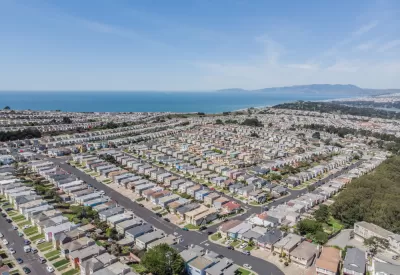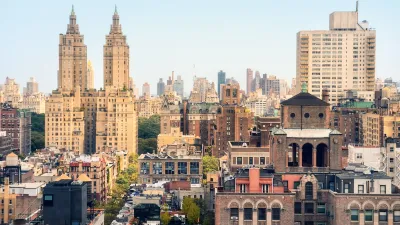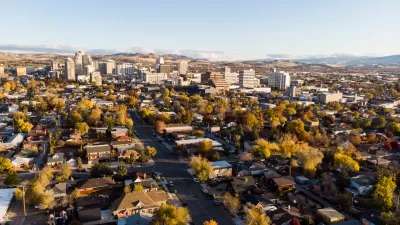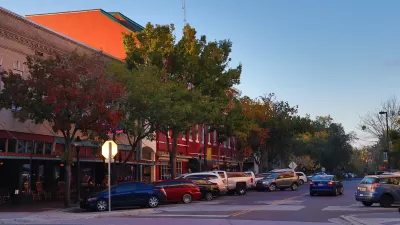Legislation approved this week finally brings the city of San Francisco up to date with state laws approved in 2016.

"The [San Francisco] Board of Supervisors gave final approval June 18 to legislation that could gradually increase housing density citywide, especially in western neighborhoods, with many of the new units being rent controlled," reports Noah Arroyo.
Arroyo elaborates on the specifics of the legislation approve this week:
The legislation, sponsored by Supervisor Ahsha Safai, will allow an accessory dwelling unit — often called an ADU or in-law unit — to be built as part of a new single-family home. Previously, the additional units could be added only after the main dwelling was built. It could also expedite the approval process for units that satisfy all local design requirements by removing the public’s ability to appeal them. The changes make San Francisco’s ADU program conform with state regulations.
The article includes more details of the conversation at the hearing that produced the vote. Also noted, is the legislation's effect in rendering moot a lawsuit brought by the California Renters Legal Advocacy and Education Fund, led by prominent member of the YIMBY movement and former candidate for supervisor in San Francisco, Sonja Trauss.
"The pro-building group sued San Francisco in December because its Accessory Dwelling Unit program failed to follow the state’s requirements that builders be able to incorporate extra units into new construction, and that the units satisfying all local zoning laws be exempt from 'discretionary review' — a process in which members of the public can ask city staff to consider whether a project should proceed," explains Arroyo.
FULL STORY: City Takes Step That Could Expand Housing on the Westside

Study: Maui’s Plan to Convert Vacation Rentals to Long-Term Housing Could Cause Nearly $1 Billion Economic Loss
The plan would reduce visitor accommodation by 25,% resulting in 1,900 jobs lost.

North Texas Transit Leaders Tout Benefits of TOD for Growing Region
At a summit focused on transit-oriented development, policymakers discussed how North Texas’ expanded light rail system can serve as a tool for economic growth.

Using Old Oil and Gas Wells for Green Energy Storage
Penn State researchers have found that repurposing abandoned oil and gas wells for geothermal-assisted compressed-air energy storage can boost efficiency, reduce environmental risks, and support clean energy and job transitions.

Private Donations Propel Early Restoration of Palisades Playground
Los Angeles has secured over $1.3 million in private funding to restore the Pacific Palisades playground months ahead of schedule, creating a modern, accessible space that supports community healing after recent wildfires.

From Blight to Benefit: Early Results From California’s Equitable Cleanup Program
The Equitable Community Revitalization Grant (ECRG) program is reshaping brownfield redevelopment by prioritizing projects in low-income and environmental justice communities, emphasizing equity, transparency, and community benefits.

Planting Relief: Tackling Las Vegas Heat One Tree at a Time
Nevada Plants, a Las Vegas-based nonprofit, is combating the city’s extreme urban heat by giving away trees to residents in underserved neighborhoods, promoting shade, sustainability, and community health.
Urban Design for Planners 1: Software Tools
This six-course series explores essential urban design concepts using open source software and equips planners with the tools they need to participate fully in the urban design process.
Planning for Universal Design
Learn the tools for implementing Universal Design in planning regulations.
Ascent Environmental
Borough of Carlisle
Institute for Housing and Urban Development Studies (IHS)
City of Grandview
Harvard GSD Executive Education
Toledo-Lucas County Plan Commissions
Salt Lake City
NYU Wagner Graduate School of Public Service





























